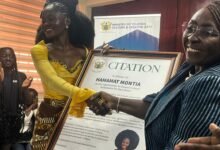MFWA expresses worry about gendered, sexualised misinformation

Kwaku Krobea Asante, Team Lead at the Media Foundation for West Africa (MFWA), has raised concerns about the rise of gendered and sexualised misinformation in Ghana, particularly as the country approaches this year’s elections.
He pointed out that this wave of misinformation was disproportionately targeting women, especially female politicians, with the intent to shame, discredit, and silence them, ultimately discouraging women from pursuing public office.
According to Krobea Asante, the emergence of such disinformation was part of a coordinated effort to undermine women in public spaces.
“We are witnessing a surge in gendered and sexualised disinformation, a deliberate attempt to attack women with false narratives. If we are to achieve gender parity and encourage more women to enter politics or hold public positions, we must address this issue head-on,” he emphasised.
Krobea Asante made these remarks at a two-day workshop in Accra, organised by the Alliance for Women in Media Africa (AWMA) and sponsored by UNESCO.
The workshop held on the theme: ‘Empowering Women in Media for Safe Election Reporting,’ was designed to train female journalists on how to safely cover elections and to empower female journalists with the tools to navigate the complexities of elections, reporting safely and effectively, underscored the importance of visibility, safety, and solidarity for women in media.
During the session, the lead fact-checker highlighted the specific types of attacks women face, including those related to their age, marital status, and family life.
These attacks, he noted, were often gender-specific and would not typically be directed at men in similar positions.
He cited examples of verbal abuse directed at prominent female politicians such as Lydia Alhassan, the Member of Parliament for Ayawaso West Wagon, who was insulted as a “bloody widow.”
More recently, running mate for the Aspiring Presidential Candidate for the NDC, Naana Opoku Agyeman, was insulted with the term “grandma.”
“These kinds of attacks are designed to silence and discredit these women,” Krobea Asante added.
He stressed the importance of education and accountability in countering this form of disinformation, urging that those responsible should be named and shamed to deter others.
Professor Audrey Gadzekpo, a patron of AWMA and Dean of the School of Communication Studies at the University of Ghana, who also addressed the workshop, urged female journalists to amplify women’s voices in election coverage, as women remain underrepresented in public spaces.
“It’s crucial to support and empower women journalists to contribute to gender parity in the media and public life,” she said.
Prof. Gadzekpo underscored the vital role women played in covering the upcoming elections and emphasised the importance of a balanced and inclusive approach to election reporting, particularly in the face of rising political violence.
Ms Mercy Adjabeng, Convener for AWMA, highlighted the gender-specific challenges women face during elections.
She emphasised the need for female journalists to raise awareness of these issues in their coverage. “How many women are standing for elections? How visible are they in media coverage? These are critical questions that need to be addressed,” she said.
FROM AMA TEKYIWAA
AMPADU AGYEMAN





